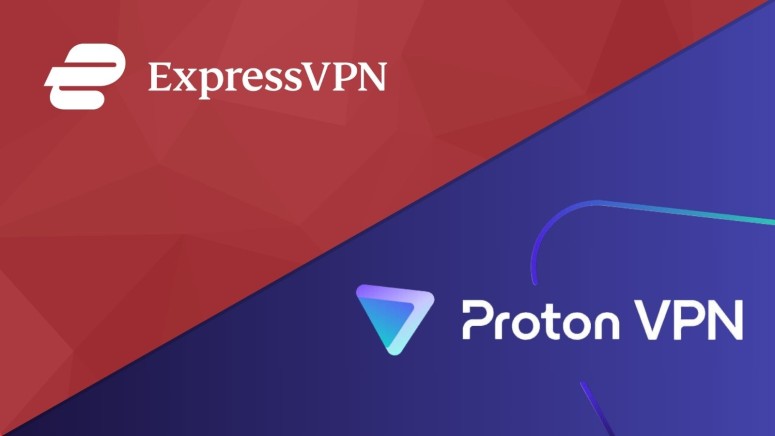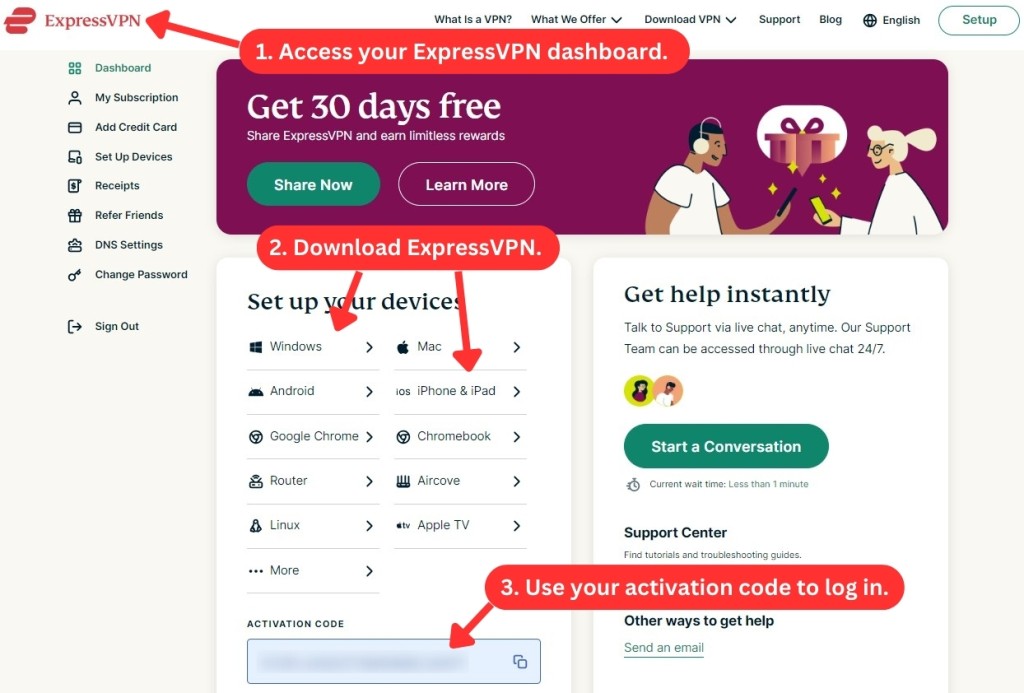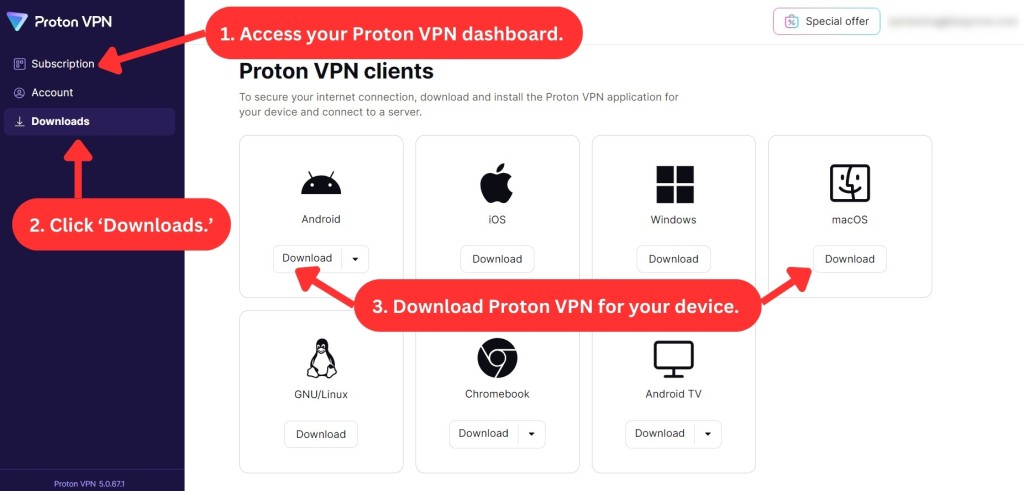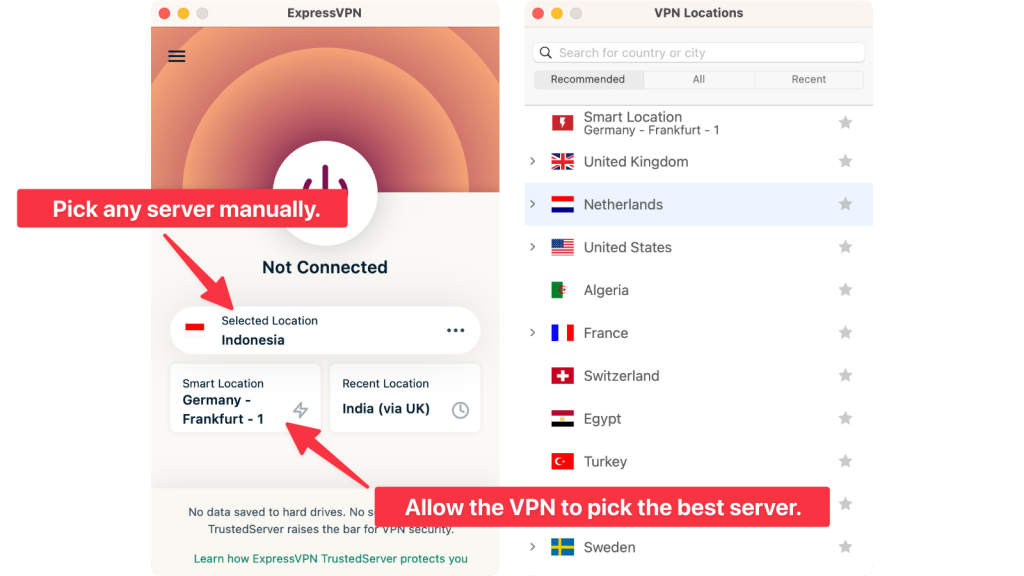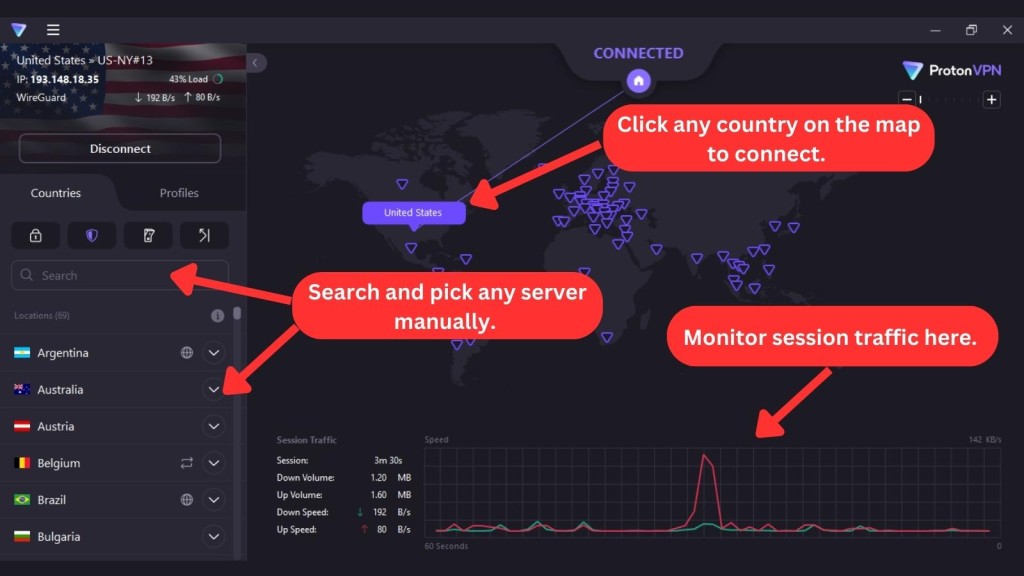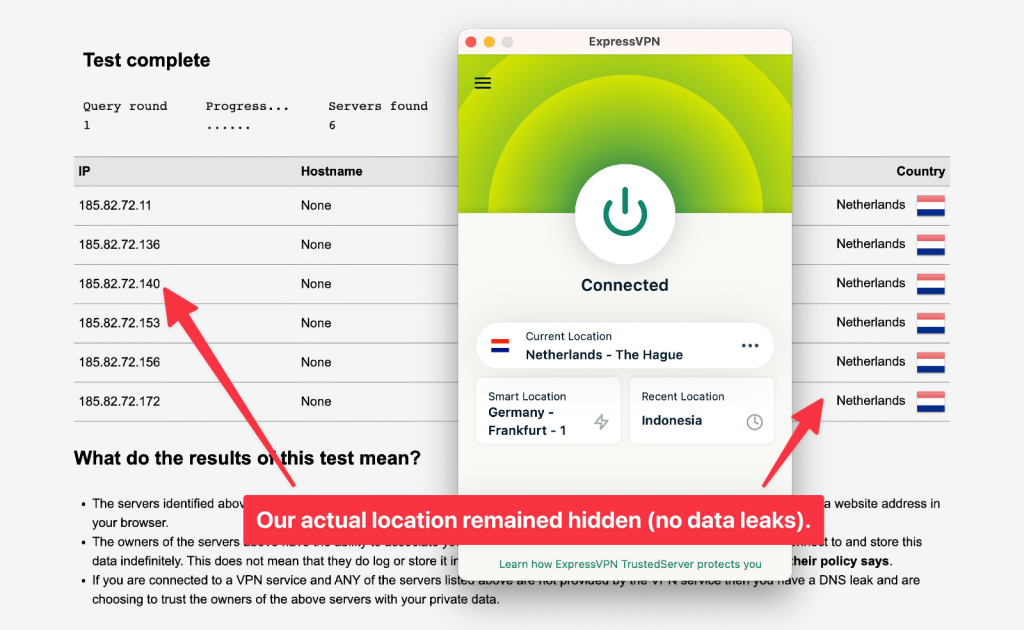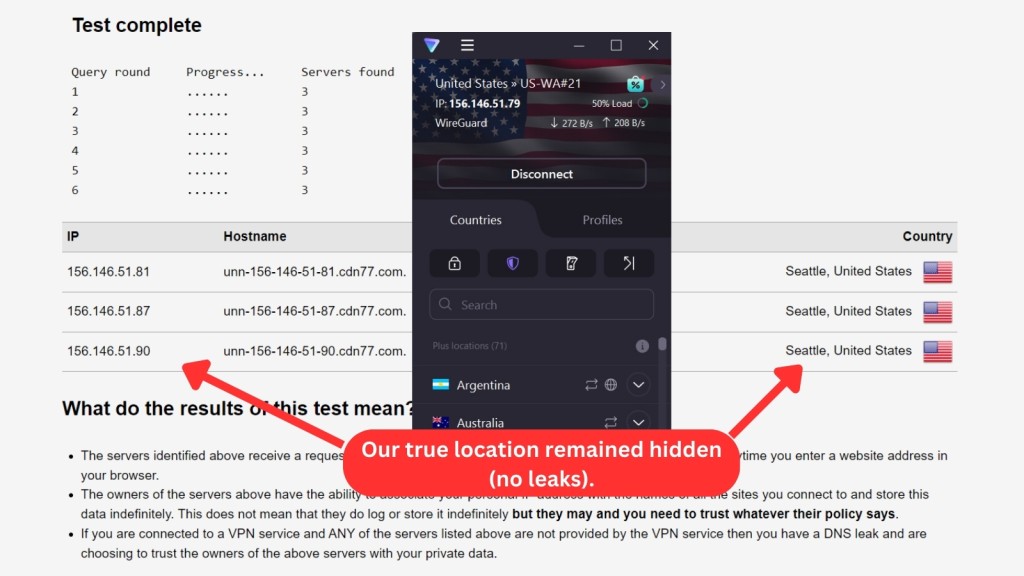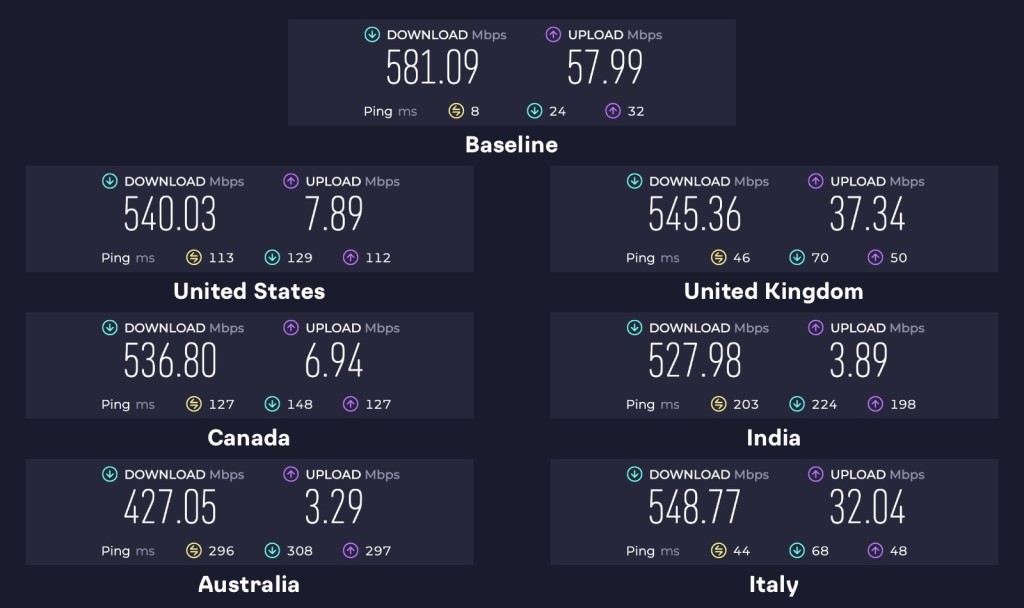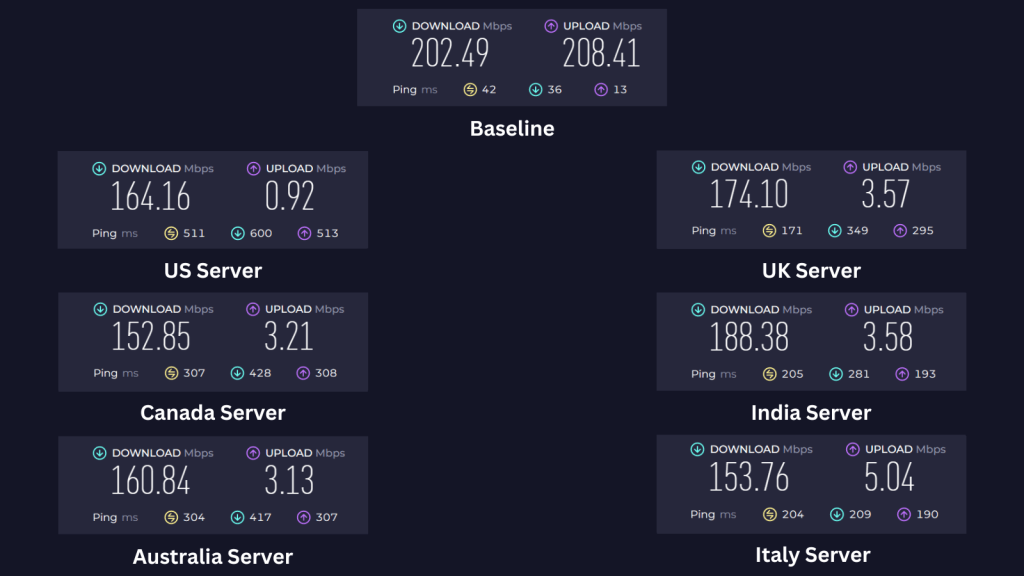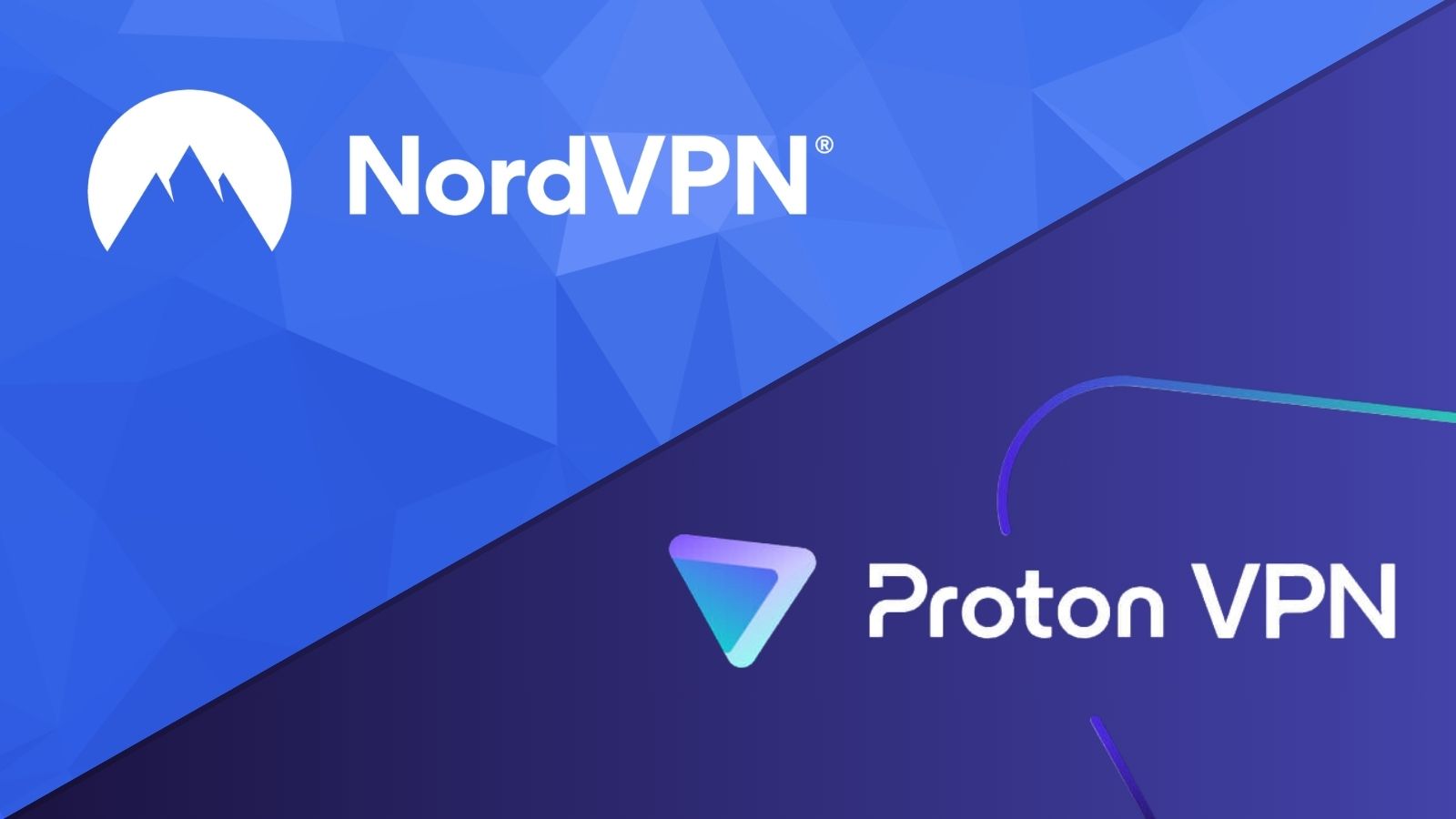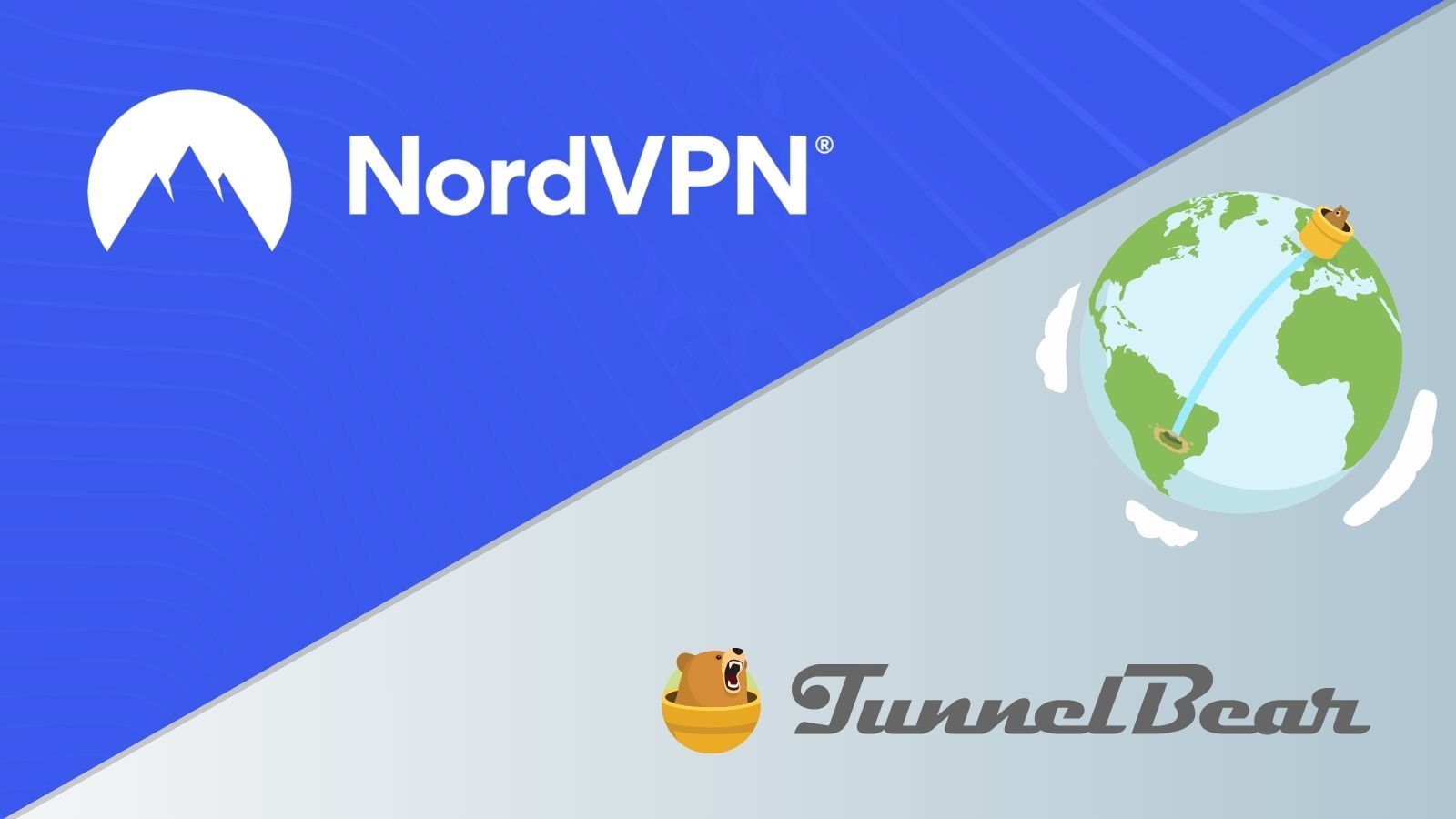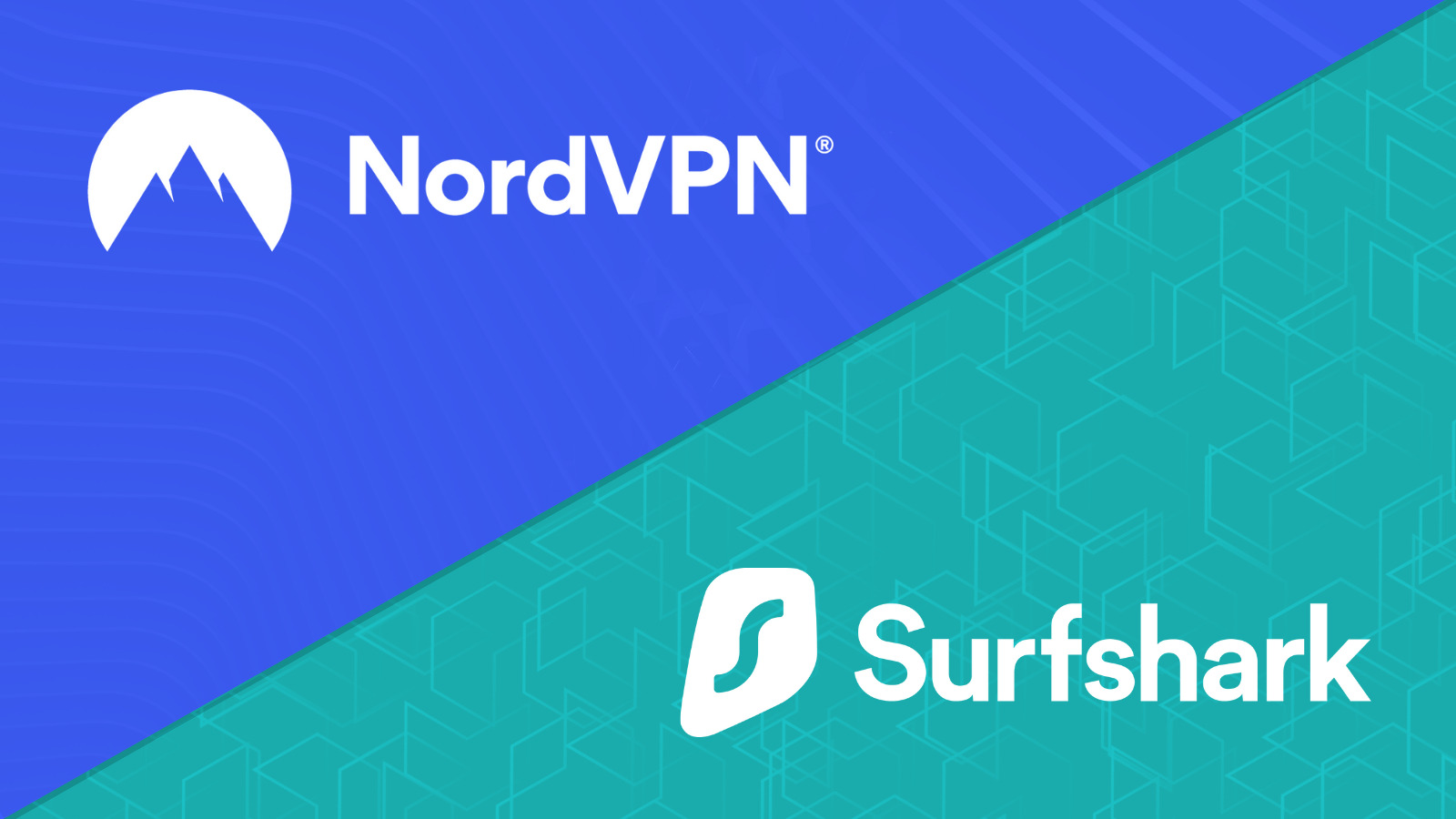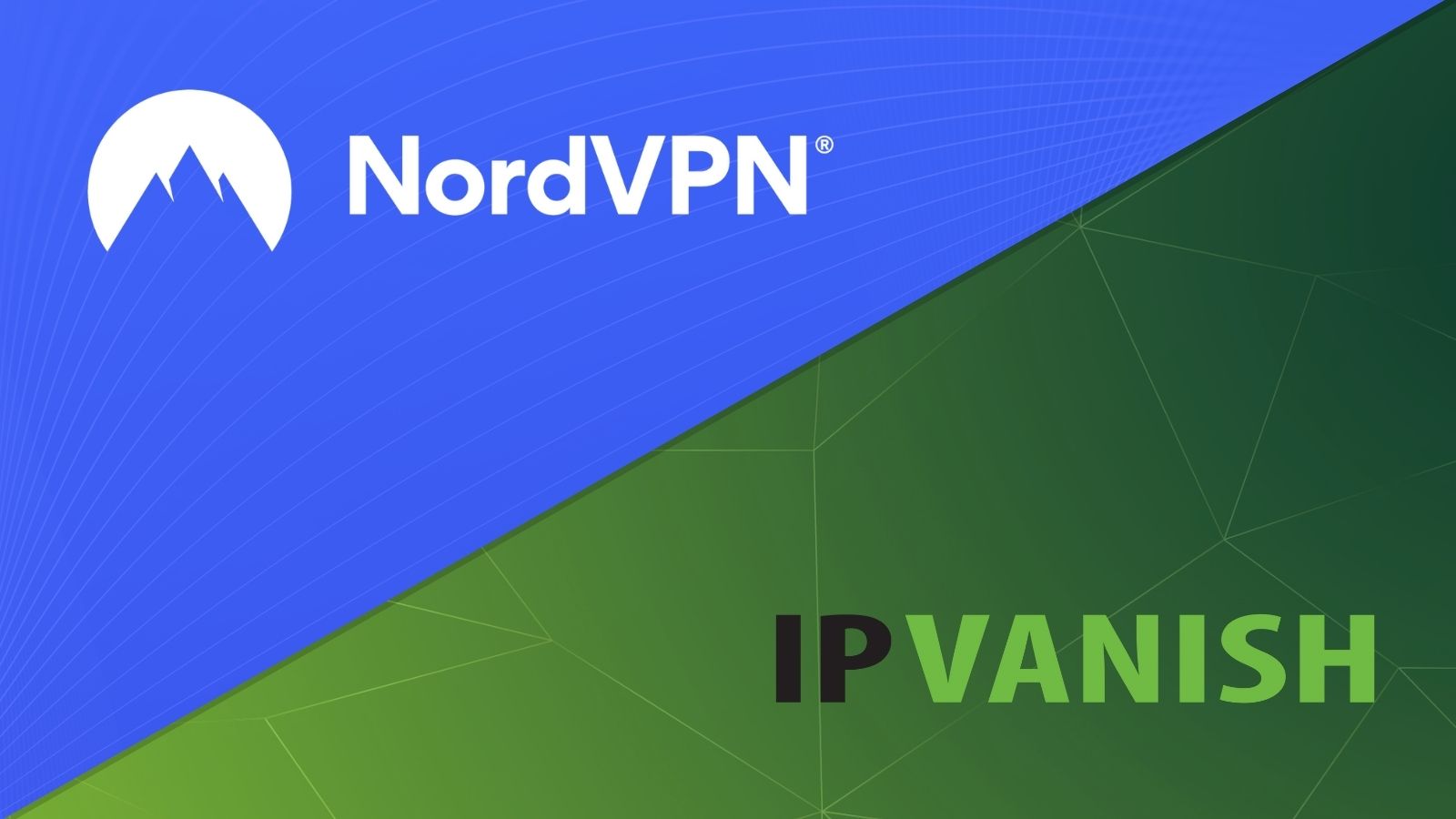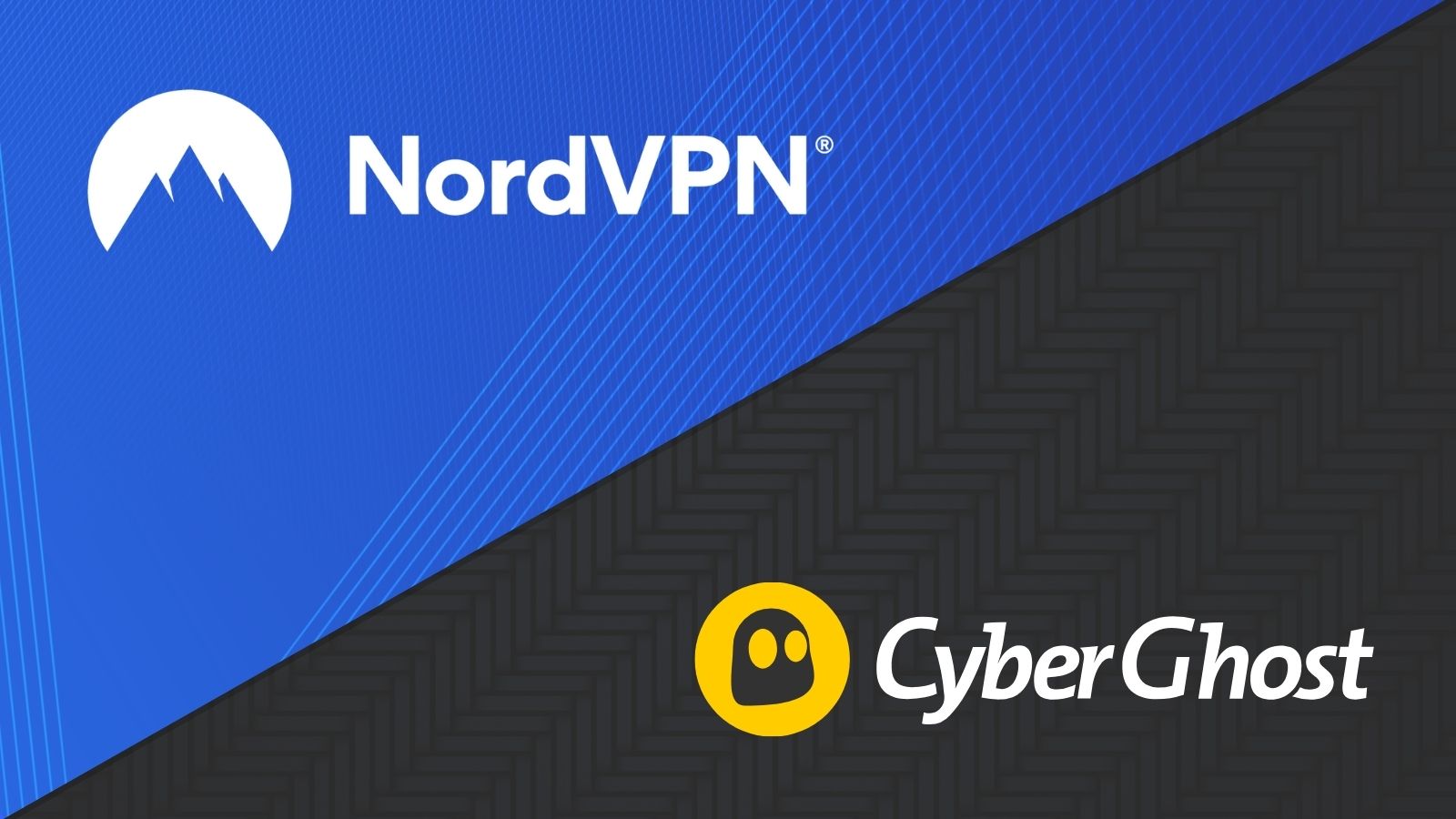When you purchase through links on our site, we may earn an affiliate commission. Here’s how it works.
ExpressVPN vs. Proton VPN 2025
Our experts have reviewed 53 VPN providers, which were put through extensive rounds of testing. To learn more about that process, here’s how we review VPNs, where we explain our criteria and our policy of being fully transparent.
Proton VPN vs ExpressVPN fight to prove they belong among the best VPNs to use. As both providers are highly ranked, we must see which one is more secure, faster, and has a better feature range.
By being set in the British Virgin Islands, ExpressVPN establishes a bulletproof security shield. On top of this, it has a strictly-audited no-logs policy and servers available in 105 countries. Thanks to its stellar speeds, you can enjoy issue-free streaming, fast torrenting, and no-lag gaming.
Similarly, Proton VPN ensures high-end data safety by being based in Switzerland, a country outside the 5/9/14-Eyes Alliance. It also doesn’t collect any logs and undergoes external audits. All of its servers (spread across 69 countries) come with fast speeds, so you’ll be able to stream, torrent, or play video games without issues.
To help you spot the key differences, we've come up with a detailed ExpressVPN vs Proton VPN comparison. Before we start, let’s briefly go over the table below.
Now that you've seen the main differences between ExpressVPN and ProtonVPN, we'll further break down all the information you need to compare the two VPNs.
We'll take a closer look at their jurisdiction, standout features, speed, user-friendliness, pricing, suitability for streaming, downloading, gaming, and more.
Background, Jurisdiction & Reputation
To evaluate the trustworthiness of a VPN, you must check its background and jurisdiction. More precisely, avoid VPNs from the 5/9/14-Eyes Alliance, known for its heightened government surveillance. That said, let’s see how ExpressVPN and Proton VPN measure up in this regard.
ExpressVPN – (Score 9/10)
ExpressVPN operates from the British Virgin Islands, which means it doesn’t belong to the 5/9/14-Eyes Alliance. Although Kape Technologies acquired ExpressVPN, Unikmind Holdings, a company based in the Isle of Man, ultimately owns it.
Despite the ownership structure, ExpressVPN maintains its base in the British Virgin Islands, keeping your data subject to their strong privacy laws. Kape also owns other VPNs like Private Internet Access (PIA), ZenMate VPN, and CyberGhost VPN. However, these VPNs operate under individual privacy policies.
More so, ExpressVPN prioritizes privacy with its no-logs policy, which third parties regularly audit. You can also rely on its RAM-only servers, further preventing any data logs.
Thanks to its robust security features, ExpressVPN has never faced data or server breaches. With its long history in the VPN industry and clean digital footprint, there’s no reason why you can't trust it.
Proton VPN – (Score 10/10)
Proton VPN is a Switzerland-based provider, meaning it’s also in a privacy-friendly location. It's owned by Proton AG, the same company behind ProtonMail (an encrypted email service). This suggests that privacy is a priority for the company.
Proton VPN also undergoes regular independent audits to verify its no-logs policy. Securitum conducted the most recent audit in April 2022 and found no security issues. However, it lacks RAM-only servers. To address this, Proton VPN uses open-source code, allowing anyone to scrutinize it for data collection practices.
When it comes to past incidents, the only privacy concern was the privilege escalation bug discovered in its code in September 2018. Fortunately, Proton VPN acted fast and fixed this issue, so no malicious code reached the whole security network. As a result, no data leaks occurred.
Who’s the Winner? – Proton VPN!
Despite the vulnerability issue in the past, Proton VPN still wins this round. Unlike ExpressVPN, it’s owned by an independent company and operates in Switzerland, where the Swiss Federal Constitution mandates strong privacy rights, including digital privacy.
So, get Proton VPN if you prefer a VPN with an independent ownership structure and strong Swiss data privacy laws.
Supported Platforms & Devices
To secure multiple devices, a VPN must offer native apps for different platforms. Fortunately, both ExpressVPN and Proton VPN offer extensive cross-platform compatibility, supporting a wide range of devices and operating systems.
ExpressVPN – (Score 10/10)
ExpressVPN offers native apps that work with many popular desktop and mobile platforms. There are also browser extensions for Chrome, Firefox, and Edge, functioning like a remote control for the VPN. Moreover, ExpressVPN has 8 simultaneous connections.
It’s also compatible with OpenVPN, DD-WRT, different stock firmware, or custom firmware-powered routers. For more details, check out our guide on how to set up ExpressVPN. Plus, you can install it in no time, as its customer support is always available to lend a hand.
But what really distinguishes it from other providers is the ExpressVPN Aircove router. It immediately connects to ExpressVPN’s servers, letting you stream securely via Android TV or streaming devices like Fire Stick.
Proton VPN – (Score 10/10)
Proton VPN has dedicated apps for all mobile and desktop devices. Recently, it even added Firefox and Chrome browser extensions.
It also works with routers powered by DD-WRT, Tomato, AsusWRT, and more. This allows you to use it even on devices that don’t support VPNs. You can also install it directly on Android TVs and Fire TV Sticks. Plus, you can connect up to 10 devices at the same time.
Who’s the Winner? – It’s a Tie!
It’s difficult to declare a clear winner in this round. Both ExpressVPN and Proton VPN offer a wide range of compatible devices, giving you the flexibility to secure your connection on the go or at home.
That said, get ExpressVPN if you’re interested in its dedicated Aircove router solution, or get Proton VPN and benefit from 10 simultaneous connections.
Installation & Initial Configuration
A VPN should provide you with an effortless installation process. To do this, it needs to have native apps that require minimal installation effort. Let's explore how ExpressVPN and Proton VPN fare in this aspect.
ExpressVPN – (Score 10/10)
You can set ExpressVPN in motion with minimum effort. Just create an account, and after that, you’ll be able to download the app you need from its dashboard. What’s even better is that it doesn’t include bloatware, so it’ll take up only a little bit of space on your device.
ExpressVPN further simplifies the setup process by providing detailed installation guides for desktops, mobile devices, and routers. They understand that users in certain regions might face restrictions, so they offer alternative methods to download the installation files, ensuring you can access their high-end protection regardless of your location.
Proton VPN – (Score 10/10)
Setting up Proton VPN is quite straightforward. You need to subscribe or sign up for Proton VPN first. Once you do this, get the installation files and download them to your device. You’ll be able to establish secure connections in no time.
The best part is that Proton VPN doesn’t come with bundled software or other interruptions. However, installing it on Android, iOS, iPadOS, or Fire OS devices is much easier, as you just need to visit the respective app store for each, and that’s it.
Who’s the Winner? – It’s a Tie!
Both ExpressVPN and Proton VPN express their user-friendliness through straightforward installation steps. They have intuitive apps for various platforms that don’t require previous VPN knowledge. Even beginners get along with their setup quite smoothly.
Having this in mind, you should get ExpressVPN if you want to be connected and protected within minutes, or get Proton VPN for an easy installation to quickly secure your device.
Prominent Features
VPNs with a wide range of features ensure robust online security and privacy. So, in this round, we explore their most impressive features and the benefits they offer.
ExpressVPN – (Score 9/10)
ExpressVPN offers both essential and advanced security features. It has a reliable kill switch that prevents IP exposure on Windows, macOS, Linux, iOS, Android, and routers. You can also benefit from its powerful VPN protocols like Lightway, OpenVPN, and IKEv2, as well as from its full data leak protection.
Windows, macOS, Android, and supported routers allow split tunneling, which excludes a part of your traffic from the VPN connection. On top of that, there’s AES-256-bit VPN encryption. More so, ExpressVPN won’t limit you in any way, so you’ll enjoy unlimited server switches, data, and bandwidth. But that’s not all.
ExpressVPN has certain features that make it stand out from the crowd, like the Threat Manager, which blocks ads or suspicious sites and eliminates any trackers. You can even get a trustworthy password manager called ExpressVPN Keys. ExpressVPN also comes with the Parallel Connections feature, which lets you connect to its servers in under one second.
Proton VPN – (Score 9/10)
Like ExpressVPN, Proton VPN offers top-notch encryption, a robust kill switch across all major platforms (Windows, macOS, Linux, iOS/iPadOS, and Android), and split tunneling functionality. Unfortunately, split tunneling only works on Windows and Android.
Regarding VPN protocols, the provider comes with Stealth, OpenVPN, WireGuard, or IKEv2, ensuring fast and secure data transmission. You’ll also enjoy unlimited data, bandwidth, and server switching.
Proton VPN extends its offerings a bit further by providing dedicated IPs. It also has a double VPN feature called Secure Core, which routes your traffic through two servers before leaving the VPN’s network. The latest Proton VPN addition is NetShield, which removes trackers, malicious ads, and all types of malware.
Who’s the Winner? – It’s a Tie!
Both Proton VPN and ExpressVPN take care of your safety. You won’t face any limitations when it comes to data and bandwidth, and you’ll receive powerful split tunneling, kill switch, and encryption.
So, get Proton VPN if you want to benefit from double VPN servers, or get ExpressVPN if you want access to plenty of VPN server locations.
Server Count & Infrastructure
The number of VPN servers is often connected to how many geo-restricted platforms you can access. In this section of our ExpressVPN vs Proton VPN review, we’ll explore what each VPN brings to the table.
ExpressVPN – (Score 8.5/10)
ExpressVPN has more than 3,000 servers spread across 105 countries. Therefore, it’s often considered the VPN with most servers or countries. Although there are other VPNs with larger server networks, ExpressVPN prioritizes speed. In fact, it has 10Gbps servers in 20+ countries.
What really satisfied us was that ExpressVPN supports torrenting, and all of its servers are optimized for streaming. However, there are no dedicated servers specifically for gaming. Nevertheless, you can use any of their servers for streaming, gaming, and torrenting without any problems.
Furthermore, this provider comes with a few virtual server locations and an obfuscation feature.
Proton VPN – (Score 7/10)
Interestingly, ExpressVPN and Proton VPN offer over 3,000 servers each. However, Proton VPN focuses on fewer countries (69) with an emphasis on high-speed 10 Gbps connections in most locations. It also offers a wider range of specialized servers, including options for P2P and streaming, as well as access to the Tor network.
Additionally, ProtonVPN offers the "Stealth" protocol on Android, macOS, and iOS devices. This protocol allows you to connect to obfuscated servers, which disguise your VPN traffic as regular Internet traffic, making it harder for third parties to detect your VPN usage.
Like ExpressVPN, Proton VPN also offers virtual servers. You can connect to them by activating the ‘Smart Routing’ feature.
Who’s the Winner? – ExpressVPN!
With a slight advantage, ExpressVPN wins again. Although both VPNs come with specialized servers and 10Gbps connections, ExpressVPN offers worldwide coverage. You can connect to any of its 3,000+ servers in 105 countries.
So, if you want to increase your chances of unblocking more geo-restricted sites in 100+ countries, get ExpressVPN.
UI/UX Design & Ease of Use
Both ExpressVPN and Proton VPN prioritize user experience with intuitive UI and UX design. Let's explore their user-friendliness in more detail.
ExpressVPN – (Score 10/10)
ExpressVPN offers native apps that are user-friendly. The desktop app welcomes you with a large power button, which will connect you to the best location. However, you can still pick your preferred server manually by selecting it from either the "all locations" list or the list of "recommended servers."
Its well-designed apps and straightforward navigation provide you with an issue-free experience. More precisely, its menu allows you to easily adjust ExpressVPN’s settings, making your experience even smoother.
The provider also ensures a consistent design across all platforms, so you won’t notice any differences if you download ExpressVPN on your mobile device.
Proton VPN – (Score 9/10)
The native apps of Proton VPN come with a polished design and easy navigation. As soon as you open the desktop app, you’ll notice a world map, which you can use to choose any server. Alternatively, you can choose from a categorized list based on server use (streaming, torrenting, and more).
If you want to fine-tune your experience, visit Proton VPN’s settings through the menu, located on the upper left side. For customization, access Proton VPN's settings menu (located in the upper left corner). Here, you'll find options to change protocols, enable port forwarding or split tunneling, and more. These features are easy to tailor to your needs, even if you're a beginner.
As for the mobile apps, they have different placements of menus. If you’re using an iOS device, you’ll find anything you need (servers, map, settings, etc.) at the bottom of your screen. On Android, the settings are located at the top.
Who’s the Winner? – ExpressVPN!
ExpressVPN offers consistency and simplicity regardless of whether you use its mobile or desktop app, so it’s not surprising that it prevails in this round. You’ll definitely get a modern interface while enjoying straightforward operations.
Having this in mind, get ExpressVPN if you want to take advantage of its mobile-like interface with minimal configuration options.
Media Streaming, Torrenting, and Gaming Support
VPNs don’t only offer protection. They also play a big part in your online entertainment, regardless of whether that’s streaming, torrenting, or gaming. So, let’s see what Proton VPN and ExpressVPN have to offer in this round.
ExpressVPN – (Score 10/10)
ExpressVPN is an excellent streaming VPN. Thanks to its special streaming servers, you can unblock Netflix, Max, Hulu, Disney+, Prime Video, BBC iPlayer, and many more.
You can even use it to download torrents. All of its servers support P2P, so you’ll have great download speeds as well as high-end security. What sets ExpressVPN apart is that many other VPNs either have very few torrenting servers or none at all, giving ExpressVPN a significant advantage.
ExpressVPN is also suitable for gaming. With over 3,000 servers that support gaming, you can bypass geo-restrictions in numerous countries. Also, you won’t face any interruptions while gaming because its servers significantly minimize ping and latency.
Proton VPN – (Score 9.5/10)
Proton VPN is also a great choice for streaming, as it has plenty of dedicated streaming servers. You can use it to unblock basically any media streaming platform, such as Netflix, Hulu, Disney+, Prime Video, Max, and others.
Thanks to its P2P-optimized servers, Proton VPN allows you to torrent without any privacy concerns. On top of this, there’s port forwarding and an ‘Always-On VPN’ feature that reconnects you to a VPN server to prevent your IP from being revealed.
Proton VPN doesn’t have special servers for gaming, but it does offer fantastic extras. Regardless of which server you pick, you’ll get unlimited bandwidth and data. As a result, you’ll be able to play as long as you want to.
Ultimately, this VPN has your ping and latency under control for the whole time, and you can even boost your speeds by 400% due to its VPN Accelerator feature.
Who’s the Winner? – ExpressVPN!
Although ExpressVPN and Proton VPN are pretty comparable in terms of entertainment features, the winner in this round is ExpressVPN. It allows you to bypass geo-restrictions in more countries and benefit from various streaming, downloading, and gaming features.
So, get ExpressVPN, as all of its servers are optimized for streaming, gaming, and torrenting.
Security & Privacy
Staying secure is as important as unblocking online content. Let's compare ExpressVPN and ProtonVPN to see which one offers better protection and privacy.
ExpressVPN – (Score 9.5/10)
ExpressVPN uses powerful VPN protocols like OpenVPN, Lightway, and IKEv2. Its unique protocol, Lightway, was developed from scratch and runs on the open-source WolfSSL library. This ensures easy audits, as anyone can check whether it logs data.
Additionally, ExpressVPN comes with an audited no-logs policy and robust RAM-only servers. These two features prove that this VPN doesn’t collect or share any confidential user data.
But to see if all of its features work properly, we thoroughly tested ExpressVPN for any data exposure. Luckily, our DNS/IP/WebRTC tests didn’t reveal any leaks. Based on these results, ExpressVPN gets an excellent security score.
Proton VPN – (Score 10/10)
Proton VPN comes loaded with some of the best VPN protocols, such as WireGuard, OpenVPN, Stealth, and IKEv2. More precisely, the Stealth protocol bypasses various restrictions, even those imposed by the government.
Its no-logs policy is regularly audited, and although there are no RAM-only servers, Proton VPN hasn’t engaged in data collection practices. Also, you can see whether the provider keeps your personal information because it uses open-source code.
We also checked Proton VPN with DNS, IP, and WebRTC tests to make sure it kept our data safe. The results were excellent - none of our data leaked, and everything stayed hidden.
Who’s the Winner? – Proton VPN!
Proton VPN emerges as the winner in this round. With both VPNs, you’ll get industry-leading VPN protocols, an audited no-logs policy, and absolutely no data leaks. Both even offer open-source code, ensuring transparency in their services.
However, if you get Proton VPN, you’ll get greater flexibility with its various VPN protocols.
Speed & Performance
Fast speeds and excellent performance reveal a lot about a VPN’s functionality. In this section, we compare the speeds of ExpressVPN and Proton VPN to see which one is faster.
ExpressVPN – (Score 9.5/10)
ExpressVPN is widely recognized for its lightning-fast speeds and incredible performance. But we wanted to make sure this was true, so we tested it in different countries. The VPN showed an average speed reduction of only 10.3%. Therefore, it really is one of the fastest VPNs we’ve come across.
To give you the best insights, we’ve reviewed the speeds of both nearby and remote servers. We were surprised that, regardless of the distance, the speed reduction was in the range of 5.5-9%. Only the farthest server slowed us down by 26.5%.
So, we’re happy to say that ExpressVPN allows you to connect to any server quickly, regardless of the distance.
Proton VPN – (Score 9/10)
Proton VPN’s speeds are comparable to those of ExpressVPN. It’s also fast, having an average speed decline of 18.3%. For a well-rounded picture of its performance, we tested the speeds of both nearby and faraway servers.
However, distance wasn’t the main factor affecting its speed. We observed variations between 7% and 25%, with the most distant Indian server surprisingly experiencing only a 7% decrease. Conversely, the nearby Italian server dropped by 24%.
These results emphasize the importance of individual server testing. Trying out a few different servers can help you find the one with the optimal speed and performance for your needs.
Who’s the Winner? – ExpressVPN!
ExpressVPN wins again. With an average slowdown of only 10.3%, ExpressVPN proves why we consider it one of the fastest VPN providers. Although Proton VPN had a speed decline of 18.3%, ExpressVPN didn’t display drastic speed changes across different servers.
That said, get ExpressVPN if you want to enjoy blazing speeds on both nearby and distant servers.
Customer Support
Prompt and efficient customer support is crucial for any VPN user. This section of our Proton VPN vs ExpressVPN comparison will show you how well these VPNs handle assistance and inquiries.
ExpressVPN – (Score 10/10)
ExpressVPN comes with extensive customer support for its users. The best support channel is its 24/7 live chat, which allows you to talk with an agent and receive instant answers about any type of issue.
You can also send them a query via email. However, as you may wait a bit longer, another alternative is to check out their thorough tutorials and guides. They have you covered for any topic and save you the waiting fuss.
Also, ExpressVPN has an FAQ section and an online Udemy course, giving you the chance to join it and learn more about the VPN within an hour of lectures. Last but not least, ExpressVPN has an active blog that includes privacy news and how-to guides.
Proton VPN – (Score 7/10)
While Proton VPN offers various support channels, its live chat is available only for premium users. So, if you’re using the free version, you’ll need to submit a support ticket and hope that you’ll receive an answer in 24 hours.
Aside from these options, Proton VPN also has step-by-step tutorials, in-depth guides, and FAQs for various issues and questions.
More so, you can also join its Proton VPN community and get assistance, even if you’re a free user. Another option is to browse through its blog, where you can find detailed explanations of different VPN topics.
Who’s the Winner? – ExpressVPN!
ExpressVPN wins again, with a significant advantage over Proton VPN. Both services provide email support, FAQs, guides, and an active blog, but ExpressVPN takes the lead by offering 24/7 live chat support.
So, if you want quick assistance, get ExpressVPN and benefit from its 24/7 live chat feature.
Pricing
A VPN’s price can make or break your final decision. Let’s have a look at the subscriptions of Proton VPN and ExpressVPN and see which provider offers better value for your money.
ExpressVPN – (Score 9/10)
ExpressVPN offers three subscription plans: monthly, 6-month, and annual. The annual plan is the most cost-effective, priced at $6.67 per month or $99.95 billed annually. This option represents a 49% savings compared to the monthly plan.
Besides the discount, you’ll also get an additional 3 months for free, as well as unlimited cloud backup for the duration of one year.
Unfortunately, ExpressVPN doesn’t offer a free version. However, you can try out its services by subscribing, and if you're unsatisfied, you can cancel your ExpressVPN subscription and get a refund within 30 days. Still, Android and iOS users are very lucky, as they can benefit from ExpressVPN’s free trial.
If you want to learn more, we recommend checking out our helpful guide on how much ExpressVPN costs.
Proton VPN – (Score 9/10)
Like ExpressVPN, Proton VPN offers you three subscriptions. Opting for the 2-year plan, which costs $4.99 per month ($119.76 billed every two years), allows you to save 50% compared to the monthly plan and grants access to all of Proton VPN’s features.
You can also use its free version. However, it only supports 1 device. All premium plans come with a risk-free 30-day money-back guarantee, so you can experience the full features and get a full refund if unsatisfied. Lastly, there’s no free trial, but the free version makes up for this.
Who’s the Winner? – It’s a Tie!
ExpressVPN and Proton VPN have different pricing but have similar subscription plans. Both offer fantastic discounts and money-back guarantees.
But if you want to take advantage of an entirely free version, get Proton VPN, and if you want an extended service with 3 extra months at no cost, get ExpressVPN.
ExpressVPN vs. Proton VPN – Which One Is Better?
ExpressVPN and Proton VPN are some of the best VPNs on the market today. Still, only one is the winner, and in our ExpressVPN vs Proton VPN comparison, that’s ExpressVPN.
To understand why, we’ve compared their scores across several key criteria. Let’s take a look at the table below.
It’s evident that both VPNs are worthwhile due to their excellent features. However, ExpressVPN excels with its optimal performance, broader server coverage, and 24/7 customer support for both paid and potential customers - even though Proton VPN offers a free tier.
So, if you’re looking for a VPN with numerous servers optimized for streaming, torrenting, and gaming with instant, round-the-clock customer support, sign up for ExpressVPN.
You’ve come to the end of our Proton VPN vs ExpressVPN comparison. If you have any doubts or questions, feel free to contact us via the comment section below. Thanks for reading!

